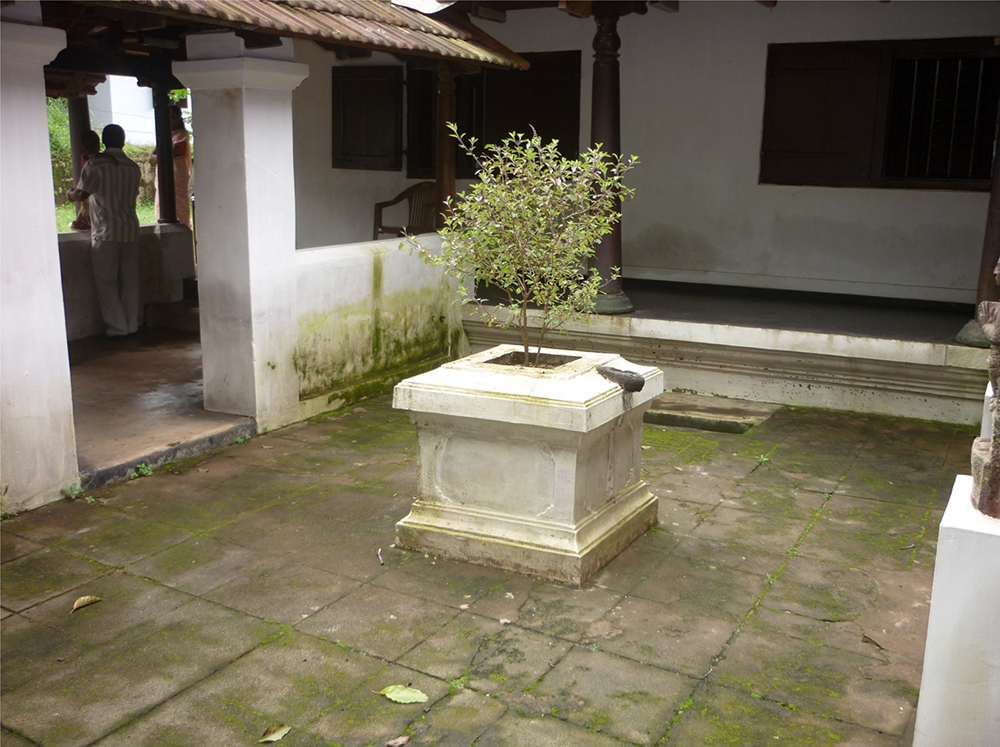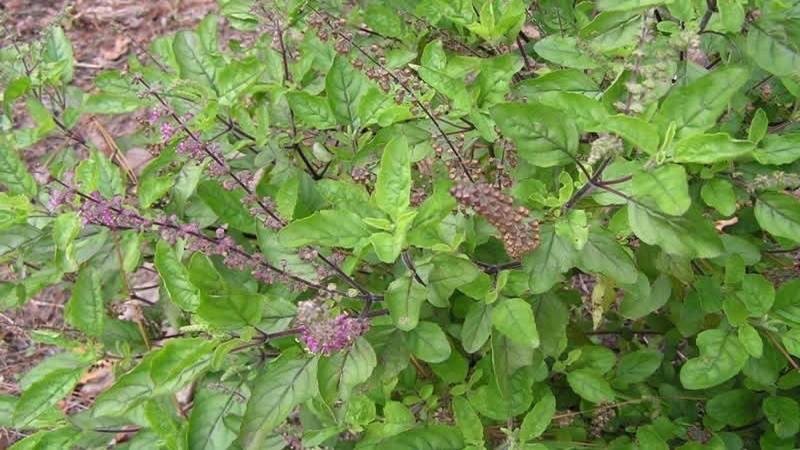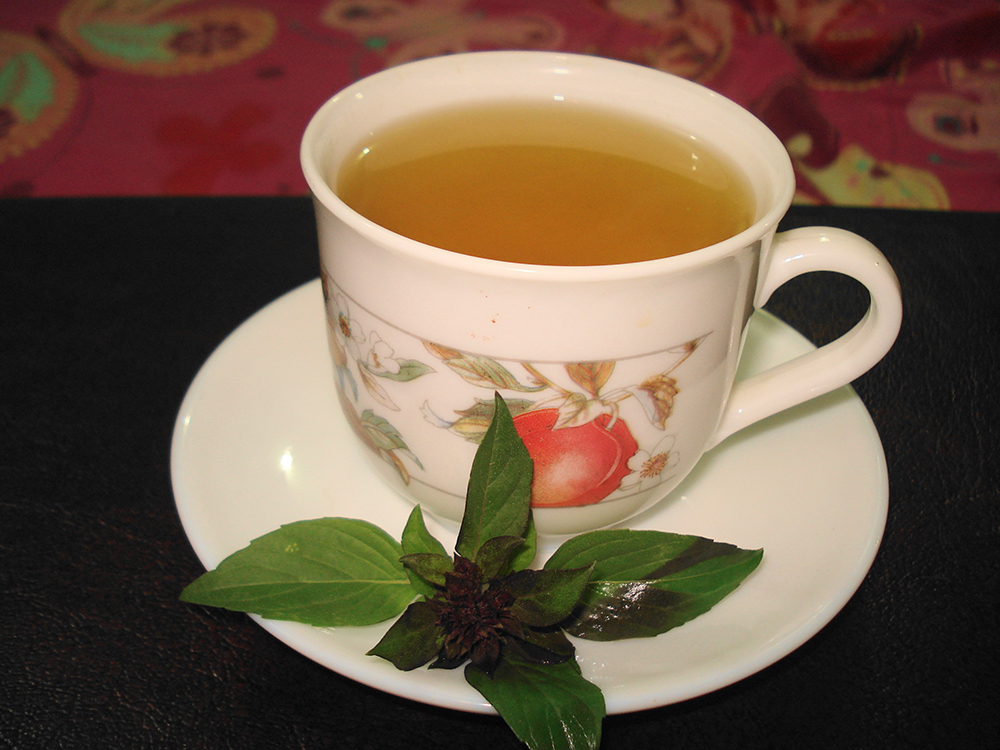Tulsi: The Elixir of Life
Tulsi, often referred to as “the incomparable one”, “elixir of life” or “queen of the herbs”, is native to India and cultivated throughout Southeast Asia. It is also called the “holy basil” as it is surrounded by legends and myths. The basil plant is revered by Hindus all over, and is considered to be a manifestation of the Goddess herself. In fact, in many homes it is grown in the centre of the courtyard. Its presence is believed to protect and safeguard the home from any kind of harmful influence. Due to its antibacterial powers, the presence of tulsi in the vicinity of the house prevents the spread of germs and helps to keep the atmosphere clean.
Every part of this plant contains some kind of spiritual significance - its roots symbolize a religious pilgrimage, its branches represent divinity, and its crown signifies an understanding of the scriptures. The leaves are definitely one of the most commonly used ingredients - a remedy for a cough, cold or congested chest. In Hinduism, the tulsi is venerated as any other divinity by lighting incense and applying vermillion. Women, in many households, worship it every morning and evening.
Tulsi: A Cure for all Ills
Tulsi, brewed into tea, is the most popular way to consume it. A handful of leaves should be first boiled and simmered for about 10 minutes. This process extracts all the goodness from the leaves. Honey or lime can be added to augment its flavour. This concoction is not just an immunity booster, it is said to be a cure for coughs, colds, skin related disorders like acne, mouth ulcers, and even helps control blood-sugar levels. Tulsi is considered to be a blood purifier. The flip side about tulsi leaves is that they should not be chewed, as they have a significant amount of mercury and iron, which is released upon chewing. The religious significance of the plant is yet another factor which makes people desist from chewing on it.
 Government of India
Government of India



































 Recognizing the ongoing need to position itself for the digital future, Indian Culture is an initiative by the Ministry of Culture. A platform that hosts data of cultural relevance from various repositories and institutions all over India.
Recognizing the ongoing need to position itself for the digital future, Indian Culture is an initiative by the Ministry of Culture. A platform that hosts data of cultural relevance from various repositories and institutions all over India.

